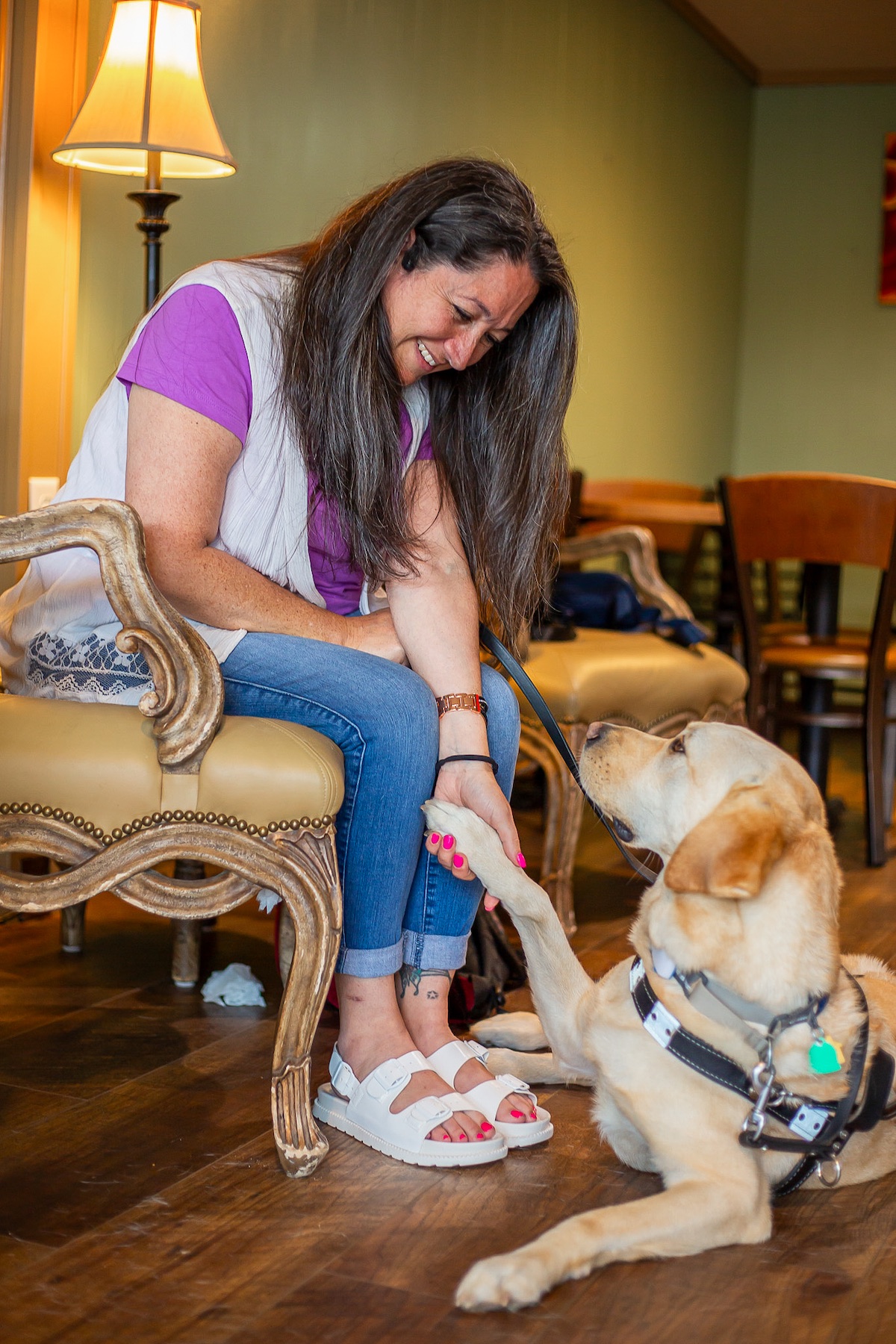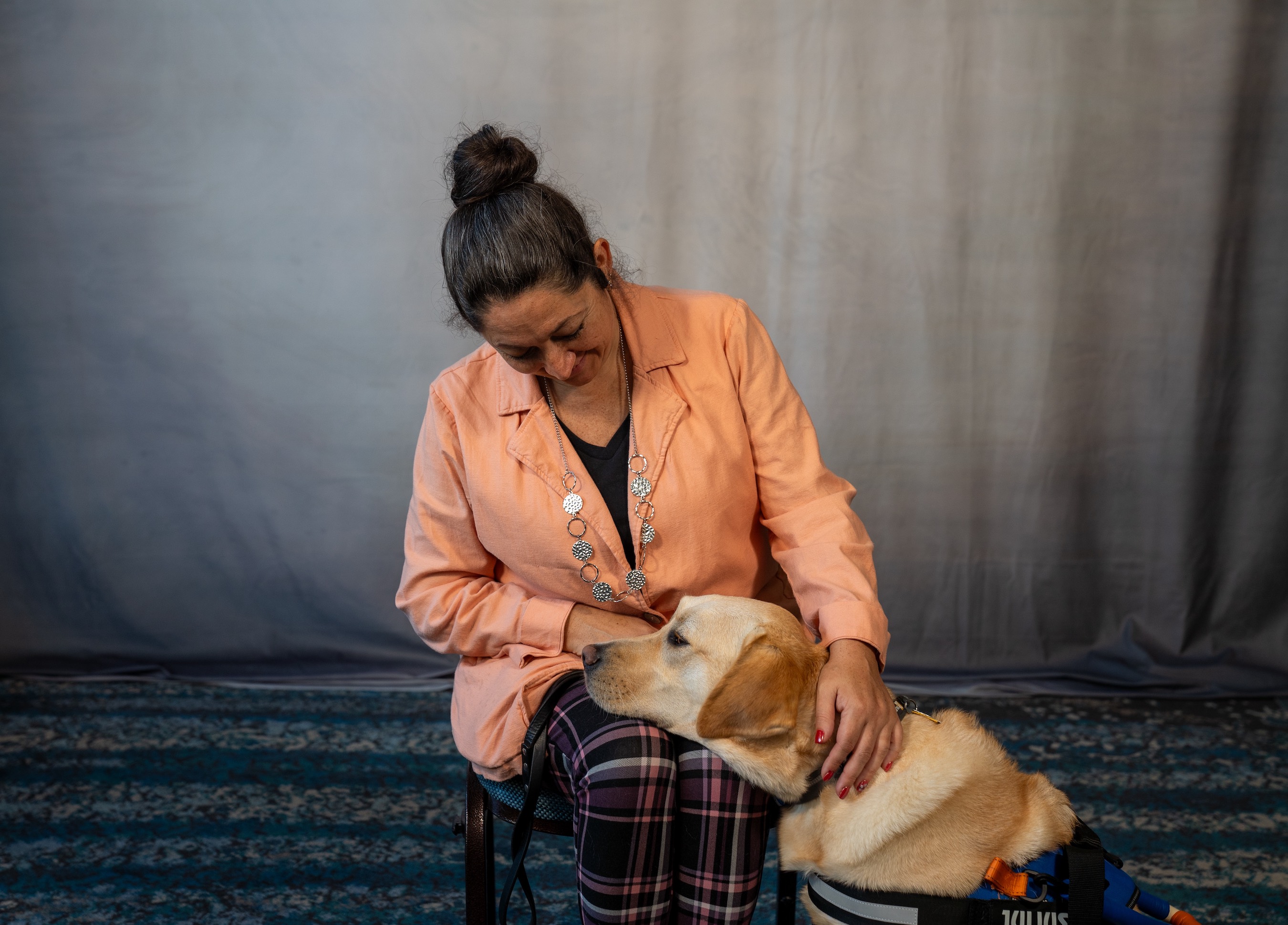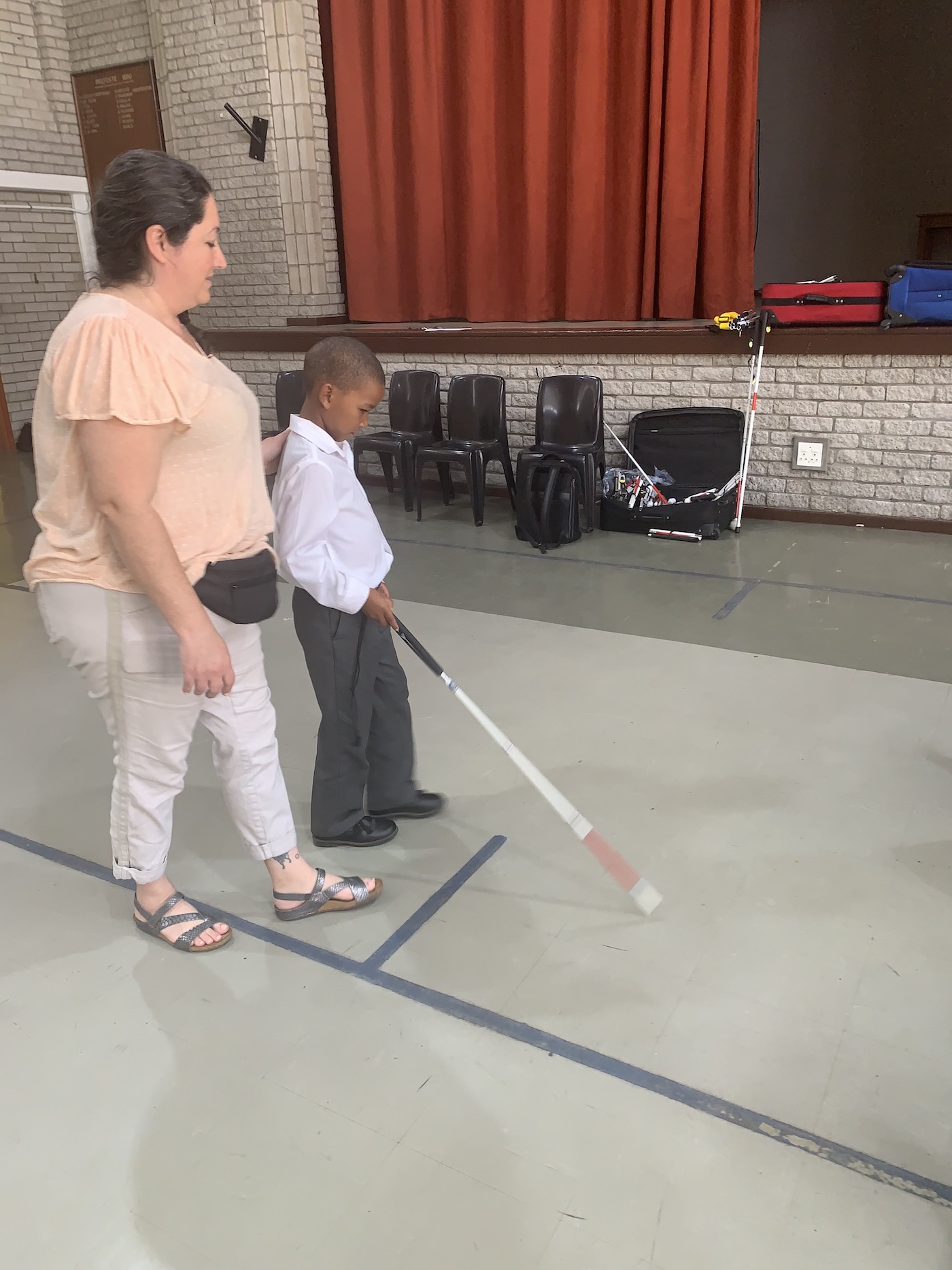47-year-old mother of five perseveres over vision loss to earn her Tennessee Tech degree

Graduating Tennessee Tech senior Amanda Juetten is pictured with her guide dog, Colonel.
Photo by Baylee Dalton/BG Photography.
When Amanda Juetten walks across the stage to receive her degree from Tennessee Tech University on May 9, she may not see the faces of her proud family and friends — but she has a clear vision for her future.
Juetten, a 47-year-old mother of five and recent first-time grandmother, began her higher education journey nearly 30 years ago in her native California, but her first stint in the classroom was short-lived. The blessing of a newborn baby right out of high school meant postponing her studies and immediately entering the workforce.
Returning to higher education as a nontraditional student can be challenging enough. But in 2020, Juetten faced an even greater obstacle: as the world shut down during the COVID-19 pandemic, so did her eyesight. Years of progressive vision loss from a condition called retinitis pigmentosa eventually led to complete blindness.
“I was left totally blind with no skills for blindness,” Juetten recalled. “Over the years, I had been taught a lot of skills for using my remaining vision, but not, ‘This is what you do with no vision.’”
Determined to regain her independence, Juetten found community and training during an eight-month stay at the Colorado Center for the Blind.
“I thought, ‘I know blind parents make their kids’ lunches. I know blind parents go
to PTA meetings. I can do this. I just need to be around a bunch of other blind people,’”
she said. “Blind people are not sitting in their basements waiting for the end. They’re
out there living their lives, and I wanted to do that too.”
Amanda Juetten and Colonel are photographed in 2024 at the National Federation for
the Blind's annual convention in Orlando, Fla.
Equipped with new adaptive techniques to navigate a world without sight, Juetten enrolled at Tech in the fall of 2022. She initially declared a major in communication, hoping to become a voice for others in the blind community.
“I knew at the time that the blind need a voice. They need someone who can speak up for them,” Juetten explained.
While her field of study changed, her goals did not. Juetten eventually shifted to pursuing a professional studies degree with a concentration in organizational leadership. She found the School of Professional Studies’ ample online course offerings and programs tailored to busy adults to be a perfect fit – especially after becoming a grandmother in 2023.
“It’s been great,” said Juetten, describing her time at Tech. “The instructors were asking, ‘What are your needs? How can I make this accessible to you?’ They have been fantastic for doing that. I never got pushback. I didn’t get people saying, ‘Why are you taking these classes?’”
Juetten added that Tech’s Accessible Education Center, and particularly staff members like Jodi Fox-Perdue, were instrumental in providing accommodations to support her learning.
Now, as graduation approaches, Juetten says her degree is more than a credential — it’s a step toward being seen as capable in a world that often underestimates people with blindness.

Amanda Juetten's passion for helping others who are blind has even led her to Capetown,
South Africa, where she is pictured on a March 2023 trip leading mobility instruction
with a young child learning to use a cane.
“We are a cross-section of society. We have the same abilities, inabilities, hopes, dreams and desires as any sighted person, yet we are approached as though all of that is diminished,” Juetten explained. “My hope is that society will begin to normalize blindness. It’s not diminished capacity. It’s just that I don’t have visual input. That’s the only difference.”
As for what’s next, Juetten plans to pursue a graduate certificate in blindness rehabilitation teaching from an out-of-state institution.
“I want to begin offering services in assistive technology, braille and the things I’ve learned and am doing well,” she said. “I want to teach blind people as a vendor of vocational rehabilitation.”
Her career ambitions are matched by her passion for advocacy. Juetten has traveled to Washington, D.C., to lobby for blindness-related initiatives and to San Francisco to protest rideshare drivers who deny service to passengers with wheelchairs or service animals.
She serves on the board of the National Federation of the Blind of Tennessee and is a past president of the Tennessee Association of Guide Dog Users. Her guide dog, Colonel, is her constant companion as she navigates life in Cookeville.
Juetten’s message to others facing a disability or diagnosis is simple, yet powerful.
“You’re still you,” she said. “You’re still capable. You’re still funny. You’re still good-looking! Blindness doesn’t change those things.”

